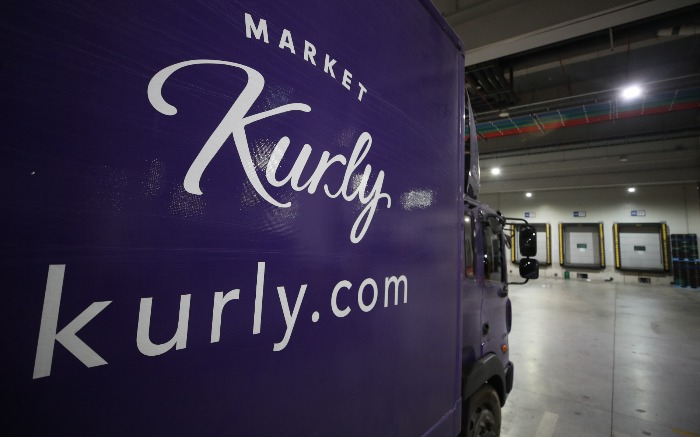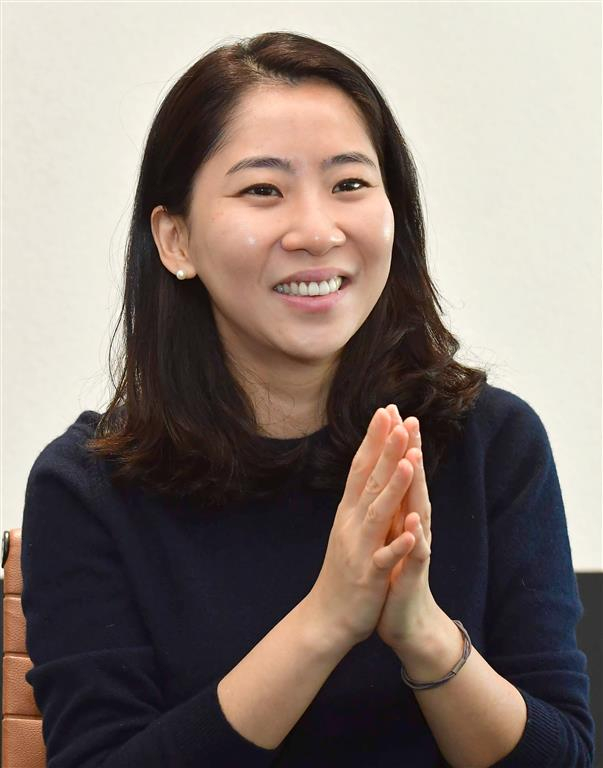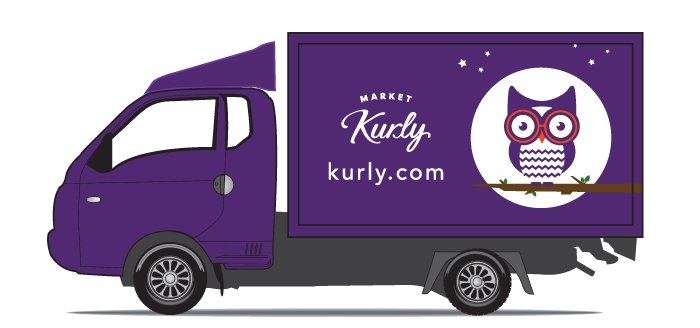Kurly seeks fresh funding at half its peak valuation
Cumulative losses and dwindling market liquidity are weighing on the food delivery platform
By Apr 03, 2023 (Gmt+09:00)
LG Chem to sell water filter business to Glenwood PE for $692 million


KT&G eyes overseas M&A after rejecting activist fund's offer


Kyobo Life poised to buy Japan’s SBI Group-owned savings bank


StockX in merger talks with Naver’s online reseller Kream


Meritz backs half of ex-manager’s $210 mn hedge fund



Kurly Inc., South Korea’s leading food delivery platform, has embarked on a new funding round to raise 100 billion won ($76 million) at about half its peak valuation, at which it raised 250 billion won in late 2021, according to people with knowledge of the matter on Monday.
The new fundraising comes after it canceled an initial public offering in January due to the subdued stock market.
The dawn delivery service pioneer has been burning cash on the back of cumulative losses, with the fresh food delivery market getting crowded with established retail giants and small-sized newcomers.
Its latest fundraising is seen as an effort to quell speculation over a possible sale to a large retail group such as Lotte, as well as prove its ability to stand on its own feet, said industry watchers.
Despite its lowered valuation, however, Kurly is still considered overvalued compared to its enterprise value.
Kurly, the operator of Market Kurly, has recently informed its shareholders of a new share issuance plan. It offers to sell new shares at the mid to high end of the 60,000 won range per share at an estimated corporate value of 2.5 trillion won.
The proposed price is more than double its off-market price of 23,750 won at a valuation in the 900 billion won range.
When it raised 250 billion won from Anchor Equity Partners in pre-IPO funding in December 2021, it was valued at 4 trillion won.

Sequoia Capital, a US-based venture capital firm, is its largest shareholder with an 11.82% stake. The other shareholders include Hillhouse Capital with a 10.91% stake; DST Global with a 9.93% stake; Hong Kong-based Aspex Management with a 7.78% stake; and Anchor Equity Partners with a 7.56% stake.
Its founder and Chief Executive Sophie Kim owns 6.25% of the company.
Its cumulative losses have pulled its valuation sharply lower.
In 2022, it posted an operating loss of 233.5 billion won, weighed by a 55.5% surge in operating expenses such as delivery and packaging costs from the previous year.
By comparison, its sales jumped 30.5% on-year to 2.04 trillion won.
Back in 2021 when the market was flush with liquidity, the gross merchandise value, or the value of goods sold on the platform, was the key valuation yardstick.
But now investors are shifting their focus to the profitability of online platforms.
“It won’t be easy to improve profits under the business model of making cold chain-based dawn deliveries of fresh food, given the low margin of fresh food and the high costs of the cold chain,” said a retail industry official.
“The more it sells, the more costs it incurs. Under the current business structure, it seems unlikely to make a profit in the near term.”
Last year, South Korea’s retail giant Lotte Group ceased dawn delivery services for fresh food, two years after it jumped into the burgeoning market to challenge Kurly and Softbank-backed Coupang Corp.
Kurly held cash reserves of 195.6 billion won as of the end of the first quarter of this year.
But industry watchers said the fresh fundraising is vital to shore up its bottom line.

Kurly plans to place new shares with its existing shareholders. But if they refuse to buy them, it will consider attracting new investors.
When it sought to list on the Korea Exchange early this year, its corporate value plunged below 1 trillion won, at which its financial investors refused to exit, according to the sources.
A growing number of rival food delivery services such as SSG.COM of the country’s leading department store Shinsegae Inc. has been eating away at Kurly’s market share.
To differentiate from them, Kurly has expanded into the online beauty market under the brand name Beauty Kurly. But the new business has made little progress since it failed to attract premium cosmetics brands.
“During the unprecedented liquidity party that lasted through 2021, CEO Sophie Kim showed confidence that she could make a profit anytime she wants,” said an investment banking industry official.
“But now it’s receiving bills. Its next phase of growth hinges on whether or not it can secure new ammunition.”
Write to Jun-Ho Cha and Jong-Kwan Park at chacha@hankyung.com
Yeonhee Kim edited this article
-

-
 Food & BeverageKurly enters Singapore grocery market, targeting SE Asia
Food & BeverageKurly enters Singapore grocery market, targeting SE AsiaAug 11, 2022 (Gmt+09:00)
1 Min read -

-

-

-

-

-

-

-
 Pre-IPO fundingMarket Kurly raises another $200 mn at a $2 bn valuation
Pre-IPO fundingMarket Kurly raises another $200 mn at a $2 bn valuationJun 01, 2021 (Gmt+09:00)
2 Min read -

-



